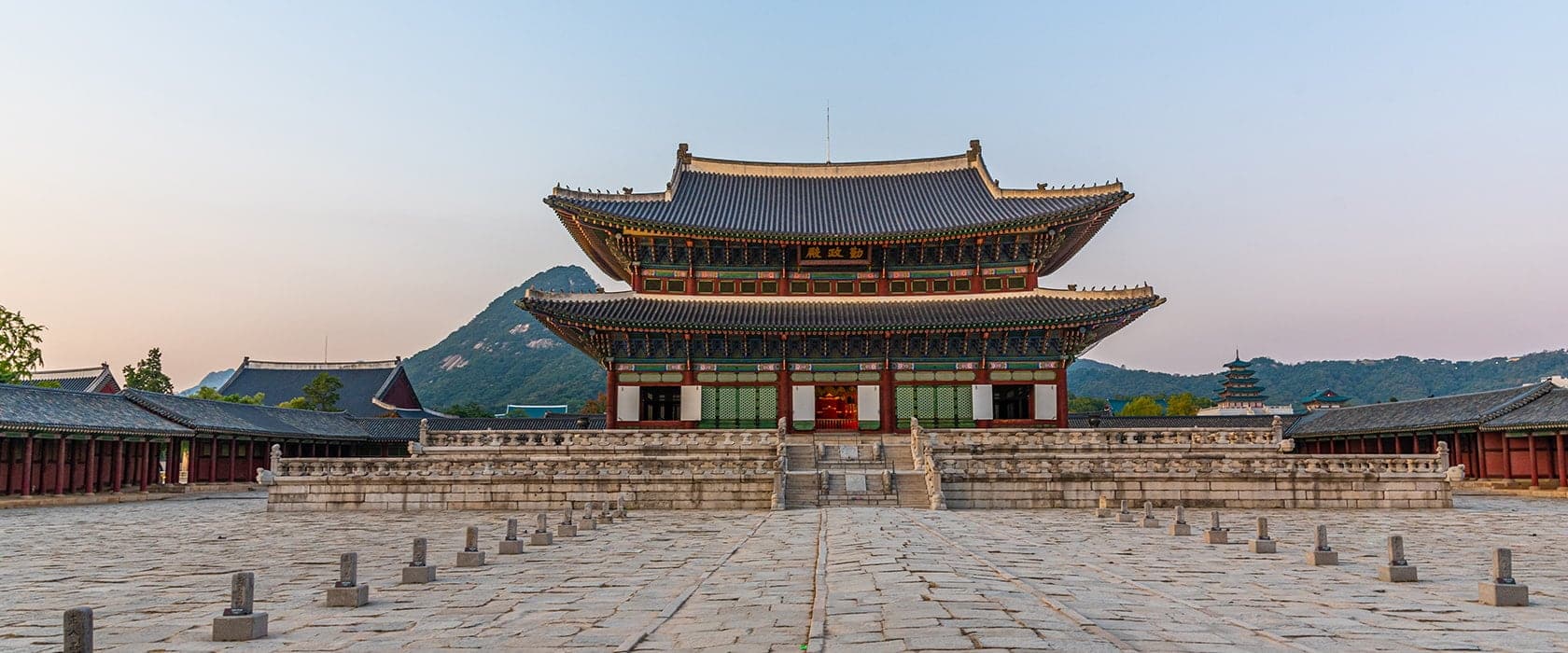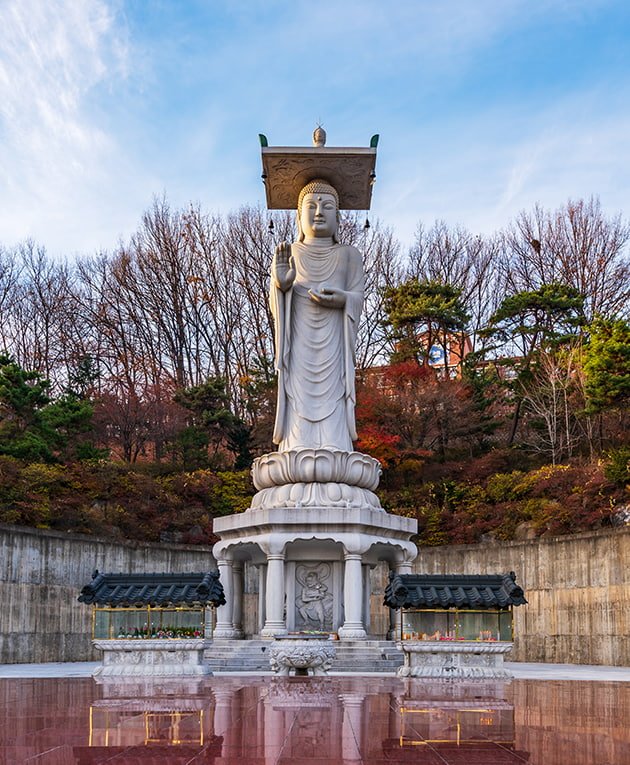-
Popular search terms
Get the Ultimate Guide
to Applying for an MBA

Download for free
Download you MBA Admissions Guide
Get the Ultimate Guide
to Applying for an MBA

Download for free
Download you MBA Admissions Guide

The fortunes of North and South Korea could not have been more different since splitting in 1948. While North Korea retreated within itself to become one of the most isolated nations in the world, South Korea has developed into a modern, global powerhouse that has seen extraordinary economic growth. Its GDP is now the 12th-highest in the world and it is considered a world leader in the fields of education, technology, and transport. Meanwhile, the so-called “Korean Wave has seen South Korean film, television, and music become enormously popular across the globe.
Investment in education has been a key government strategy over recent decades, which means the country is now home to a number of world-class universities and business schools. With cutting-edge campuses, international faculties, and globally-renowned teaching standards, the number of international students in South Korea has increased dramatically. From just over 12,000 international students in 2003, the government now looks like it will meet its target of having 200,000 international students by 2023. It is symbolic of the growth of South Korea as a whole, which has seen it transform into one of the most prestigious study destinations in the world.

If you plan to do a Master in South Korea, you will need to apply for a D-2 Student Visa at the Korean Embassy in your country. You will be asked to provide a valid passport and evidence that you can afford your studies in South Korea. Application fees vary based on the country you are from. Visa fees for US citizens are around US$65 and are subject to change based on current exchange rates. As soon as you arrive in South Korea, you will be required to apply for an Alien Registration Card (ARC). You need to have your ARC ready before you start your studies at the university.
International students who hold a degree from a South Korean university may be eligible to apply for a work visa (also known as a job-seeker visa), which is used to search for a job or to start a business in South Korea. You will need to apply for the
Opening a bank account in South Korea will be helpful to manage your daily finances during your studies. When opening a bank account in South Korea, you will receive a Korean bank card that will be accepted everywhere. Applying for a bank account as an international student in South Korea is a straightforward and easy process. You will need to have a valid passport, your ARC (residence permit), and a Korean phone number. Although policies vary from bank to bank, the majority of Korean financial institutions offer no-fee bank accounts. It should be easy to find banks that do not require a minimum deposit or have monthly service fees.
Top South Korean banks for foreign nationals include Kookmin Bank (KB), Standard Chartered Bank Korea, Hana Bank, and Woori Bank.
Every person living in South Korea is entitled to healthcare under the National Health Insurance (NHI) scheme in South Korea. International students in South Korea will receive the same medical benefits and services as Korean citizens.
International students residing in South Korea with a valid D-2 student visa are subject to a mandatory subscription to the Korean National health insurance. The insurance costs ₩43,490 (US$34.60) per month. In most cases, your university will organize your insurance for you and insurance costs may be included as part of your tuition fees.
International students in South Korea have the option of living in a “Goshiwon” (similar to an off-campus dormitory), renting a room in a shared apartment, or renting a studio apartment for themselves. A Goshiwon is the cheapest option for students on a budget. Located near the university, the cost of a Goshiwon in Seoul usually begins at ₩250,000 (US$199) a month. On the other hand, studio rentals start at ₩38,000 (US$30), excluding utilities. Prices of accommodation vary greatly – in Seoul, expect to pay higher rental prices.
South Korea has a highly modern and efficient system of public transportation. It has one of the best underground railways with high-speed trains. Seoul has an effective metro system that can be used with a rechargeable T-Money Card. The T-Money card is a standard transit card that can be used on any public bus, subway, or taxi. The travel card also offers travel discounts. You can also choose to get around by taxi, which is another great way to move around a city like Seoul. Taxi meters start at about ₩3,000 (US$2.38).
The Big Mac Index was invented by The Economist in 1986 as an informal way of measuring the purchasing power parity (PPP) between two currencies. The price of a Big Mac in South Korea is ₩4,600 (equivalent to US$3.66, EUR€3.40, and JP¥465). For US$50, you can buy 13 Big Macs.
Seoul has one of the highest costs of living for foreign nationals. International students should budget around ₩652,000 (US$519) per month, excluding rent. After Seoul, the most expensive places in South Korea are Incheon, Jeju Island, and Busan.